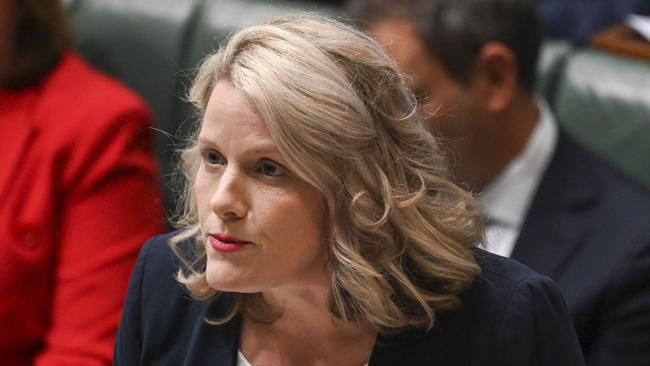Clearer pathways for temporary migrants to citizenship under immigration revamp
Temporary migrants will have a clearer path to citizenship and the points test to grant visas to foreign workers reformed under a major overhaul of the migration system.

Temporary migrants will have a clearer path to citizenship and the points test to grant visas to foreign workers will be reformed under a major overhaul of the migration system that is projected to add billions of dollars to the economy over coming decades.
Home Affairs Minister Clare O’Neil said recalibrating the points test – through which 100,000 migrants arrive in the country every year – to attract well-qualified, high-value workers was vital to determining which temporary migrants become permanent residents and ultimately citizens.
“The current test is not working properly,” Ms O’Neil said in an address to the National Press Club on Thursday. “The bar is set too low and today the points test rewards persistence, not the skills needed for Australia’s future.
“Getting that points test right could add tens of billions of dollars to the federal budget over the coming decades and make a real difference to economic growth in our country.”
The current points test for the Skilled Independent Visa awards points to prospective migrants based on age, qualifications, work history and English proficiency, and has been criticised in the review for failing to bring in migrants with “attributes that will boost productivity, foster innovation, add to Australia’s skill base, and contribute to our economic growth over the long term”.
“This can be done by recalibrating the points test, taking a wider approach to attracting highly skilled migrants, and encouraging high potential international students educated here to remain,” the review said.
The number of temporary migrants has more than doubled in a decade from one million in 2007 to 2.1 million in March this year, raising concerns that an underclass of people has been allowed to “become permanently temporary” with no clear pathway, the review found.
The report also highlighted the “frustration and mental cost” caused by the uncertainty that surrounds the “unclear” pathway to permanent residency.
“Australia’s visa settings have unintentionally enabled a cohort of migrants to become permanently temporary,” the report said.
“These people have been working in Australia for long enough to integrate into the community, but remain temporary. It is clear that there is little support within the community for the growth of a ‘permanently temporary’ cohort in Australia, and in particular a sense that Australians don’t want a ‘guest worker’ society.”




To join the conversation, please log in. Don't have an account? Register
Join the conversation, you are commenting as Logout